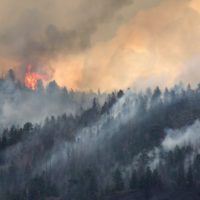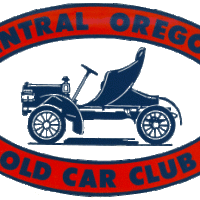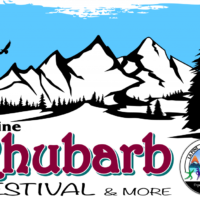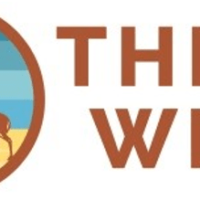
The Humane Society of Central Oregon wants to remind people that unhealthy air quality also applies to animals. If you are experiencing breathing issues, scratchy eyes and throat, your body is reacting to toxins in the smoke. This smoke also affects pets, horses, livestock and wildlife in similar ways. Animals that have cardiovascular or respiratory disease are most vulnerable during poor air quality and should be monitored.
Keep your pets indoors and limit time outside. The Humane Society of Central Oregon rents dog crates for $5 a month if your dog is not fully housetrained and containment will help.
The Humane Society of Central Oregon and the American Veterinary Medical Association offers these tips:
Tips to Protect Pets
- Keep pets indoors as much as possible, and keep your windows shut.
- Birds are particularly susceptible and should not be allowed outside when smoke or particulate matter are present.
- Let dogs and cats outside only for brief bathroom breaks if air quality alerts are in effect.
- Avoid intense outdoor exercise during periods of poor air quality. Exercise pets when dust and smoke has settled.
- Have a pet evacuation kit ready, and include your animals in your disaster preparedness planning.
Look for the following signs of possible smoke or dust irritation in animals. If your animal is experiencing any of these signs, please consult your veterinarian.
- Coughing or gagging
- Difficulty breathing, including open mouth breathing and increased noise when breathing
- Eye irritation and excessive watering
- Inflammation of throat or mouth
- Nasal discharge
- Asthma-like symptoms
- Increased breathing rate
- Fatigue or weakness
- Disorientation or stumbling
- Reduced appetite and/or thirst
Tips to Protect Livestock
- Limit exercise when smoke is visible. Especially don’t require animals to perform ctivities that substantively increase airflow into and out of the lungs.
- Provide plenty of fresh water near feeding areas.
- Limit dust exposure by feeding low-dust or dust-free feeds and sprinkling or misting the livestock holding area.
- Plan to give livestock 4 to 6 weeks to recuperate after the air quality returns to normal. Attempting to handle, move, or transport livestock may delay healing and compromise your animals’ performance.















